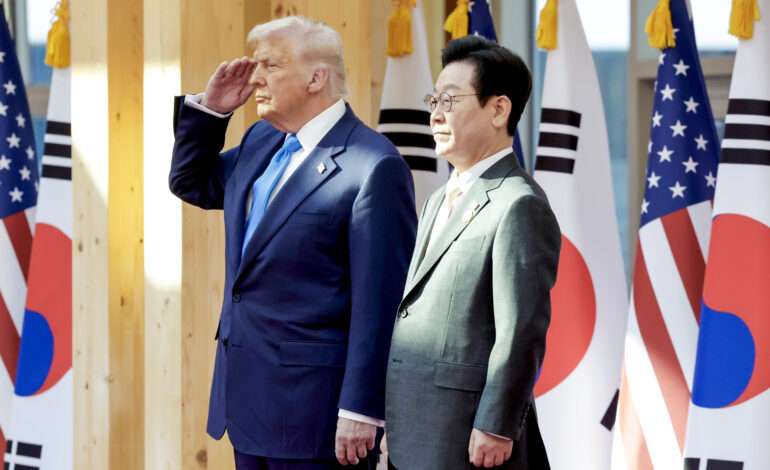
South Korea eyes possible revision of 123 nuclear pact as it seeks enrichment and reprocessing rights
South Korea will monitor potential changes to its bilateral nuclear cooperation pact with the United States as it pursues expanded civilian rights for uranium enrichment and spent fuel reprocessing, a senior Seoul diplomat told lawmakers on Friday.
First Vice Minister Park Yoon-joo made the remarks during a session of the parliamentary Foreign Affairs and Unification Committee after the two countries issued a joint fact sheet outlining trade and security agreements. The fact sheet said Washington “supports the process that will lead to the ROK’s civil uranium enrichment and spent fuel reprocessing for peaceful uses,” consistent with the U.S.–ROK 123 agreement and U.S. legal requirements.
While the pledge is widely seen in Seoul as a major step toward improving nuclear fuel efficiency and energy self-reliance, Park warned that implementing the commitment will require a sequence of legal and diplomatic measures. “In addition to internal procedures in the U.S., there are additional steps that should be taken, given the many aspects involved, including a revision (of the pact),” she told the committee, responding to a lawmaker’s question about whether a revision of the 123 agreement had been agreed.
The 123 agreement — the U.S. statutory framework that governs nuclear cooperation with partner states — will likely figure prominently in consultations between the two governments. Park said Seoul is “keeping an eye” on a possible revision as talks progress, while stressing that both countries “have a strong will” to implement the recent understanding on enrichment and reprocessing. Nevertheless, she cautioned that necessary domestic steps remain, including legal reviews in South Korea.
On the U.S. side, Park noted that any change to the pact would require extensive interagency consultations and adherence to U.S. legal processes, signaling that implementation could take time. The two governments will need to align technical safeguards, nonproliferation assurances, and regulatory frameworks before civilian enrichment and reprocessing activities can proceed.
Seoul views the agreement as a strategic gain that could enhance fuel-cycle flexibility, lower dependence on foreign fuel supplies, and support its long-term civil nuclear ambitions. But policymakers must balance those benefits with international nonproliferation commitments and the procedural complexities of revising a high-level bilateral accord.
Lawmakers at the committee session pressed for clarity on timelines and the legal steps required domestically and in Washington. Park’s remarks underlined that while political momentum exists, detailed legal work, bilateral consultations, and interagency coordination on both sides will determine how quickly and how fully South Korea can realize expanded nuclear fuel-cycle rights.
The governments agreed to continue consultations to translate the joint fact sheet’s commitments into concrete measures, leaving open the question of whether and when the 123 agreement will be formally amended to accommodate the new arrangements.